When it comes to negotiating labor contracts, crafting the right message is essential. A well-structured letter can set the tone for productive discussions and demonstrate a commitment to collaboration. By clearly outlining your goals and the benefits of cooperation, you can foster a spirit of partnership that paves the way for successful outcomes. Curious to learn how to create a compelling negotiation letter for your labor union?

Clarity and Specificity
Effective labor union negotiations require clarity and specificity in communication. Clear articulation of demands, such as wage increases percentage targets (e.g., 5% annually) or enhanced health benefits, allows for precise understanding between labor representatives and management. Specific terms relating to workplace safety, including adherence to OSHA (Occupational Safety and Health Administration) guidelines, need detailed explanation to ensure compliance. Additionally, clarity regarding the negotiation timeline, like deadlines for proposals and counterproposals, fosters accountability and progress tracking. By emphasizing explicit language and defined terms, both parties can work towards mutually beneficial agreements while minimizing misunderstandings.
Mutual Respect and Professional Tone
In labor union negotiations, fostering an environment rooted in mutual respect is essential to ensure effective dialogue between representatives and management. Open communication channels can enhance understanding and cooperation, leading to more productive discussions surrounding key issues such as wage increases, workplace safety standards, and employee benefits. A professional tone remains vital throughout conversations, allowing all parties to express concerns and expectations clearly. Establishing ground rules for respectful engagement can prevent misunderstandings and conflicts, ensuring that each stakeholder's voice is valued and considered in the decision-making process. Emphasizing collaboration over confrontation cultivates a positive atmosphere that can drive progress toward mutually beneficial agreements.
Concise Proposal Details
Workers in various industries, such as manufacturing and healthcare, seek improved contract terms during union negotiations. Proposals often include demands for increased wages, typically a minimum of 10% raise annually, enhanced health benefits covering more comprehensive medical services, and improved working conditions to eliminate hazards in workplaces like factories or hospitals. Key items might also address job security provisions, ensuring that positions remain safeguarded against outsourcing. Additionally, workers often advocate for better retirement plans, aiming for pension contributions to rise to at least 15% of employees' salaries, alongside measures for equal pay equity across all genders and positions, particularly in sectors with significant wage gaps, like education and technology.
Evidence-Based Justifications
Evidence-based justifications for labor union negotiations highlight critical reforms and improvements in workplace conditions. Research indicates a 20% increase in employee productivity associated with fair wage compensation in sectors like manufacturing and healthcare. Studies demonstrate that improved workplace safety standards can decrease injury rates by up to 40%. Additionally, data from the Bureau of Labor Statistics show that sectors with strong union representation experience 15% higher wages on average than non-unionized counterparts. Enhanced job security from union negotiations can lead to a more stable workforce, reducing turnover costs for employers and fostering long-term growth. Effective union representation can create a culture of transparent communication, leading to expedited conflict resolution and an overall harmonious work environment.
Flexibility and Willingness to Compromise
Labor unions play a pivotal role in advocating for workers' rights and negotiating fair terms with employers. During labor negotiations, flexibility is essential, allowing both parties to engage constructively and find common ground on issues such as wages, working conditions, and benefits packages. A willingness to compromise can facilitate the creation of contracts that address employees' needs while considering the employer's operational constraints. For instance, a proposal for additional paid leave days might be offset by adjustments in work schedules, ensuring productivity while enhancing employee satisfaction. Effective negotiations can lead to improved morale within the workforce and foster a collaborative relationship between union representatives and company management.
Letter Template For Labor Union Negotiation Samples
Letter template of labor agreement proposal for better working conditions
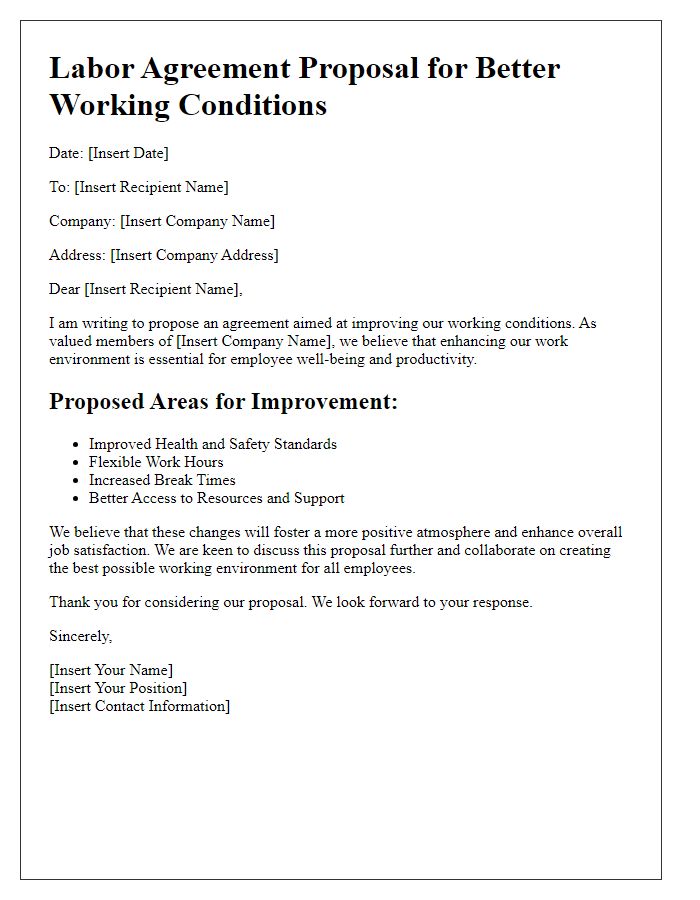

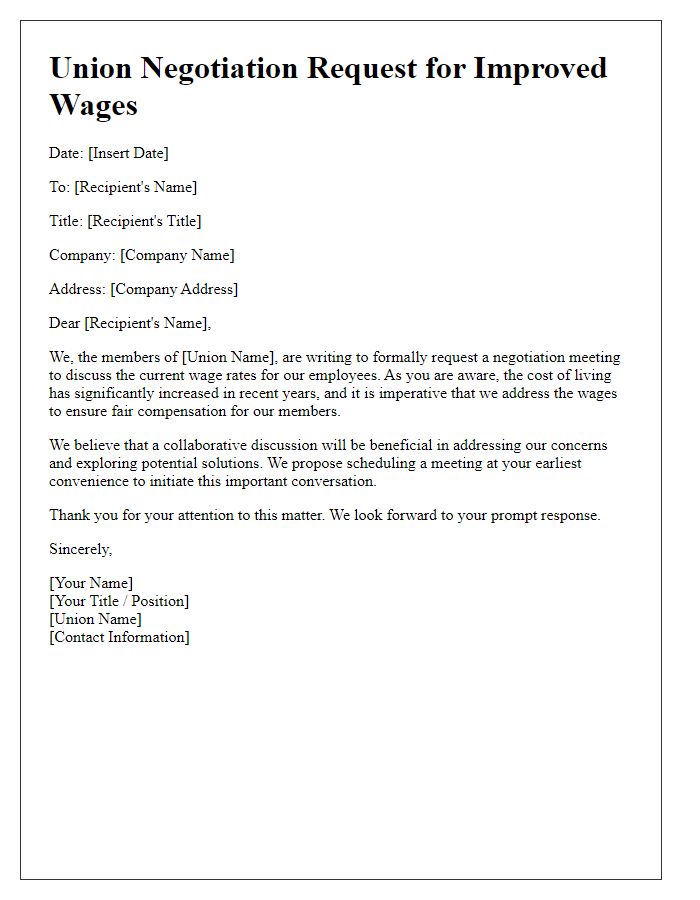
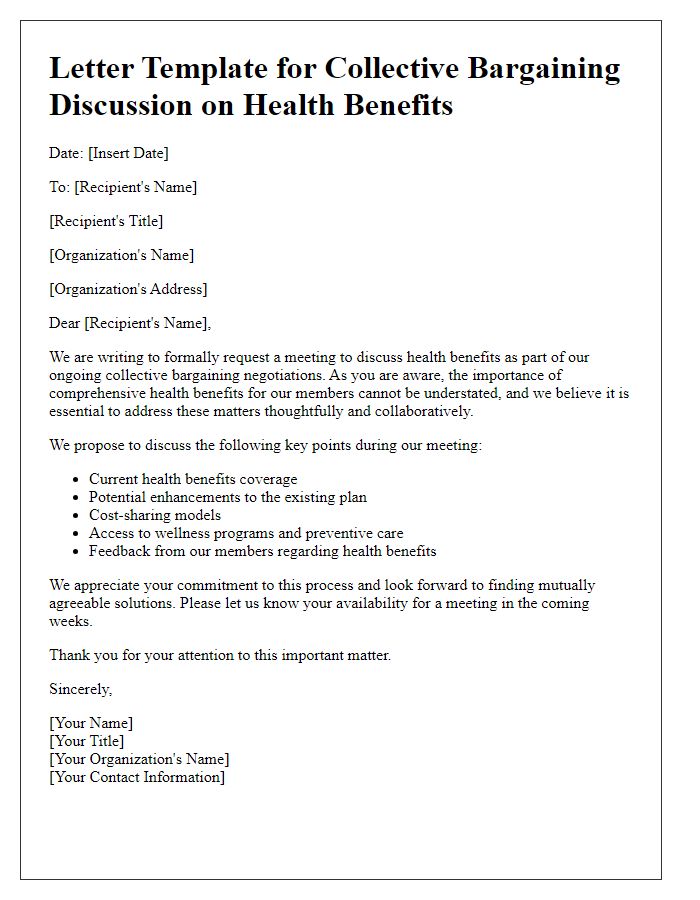
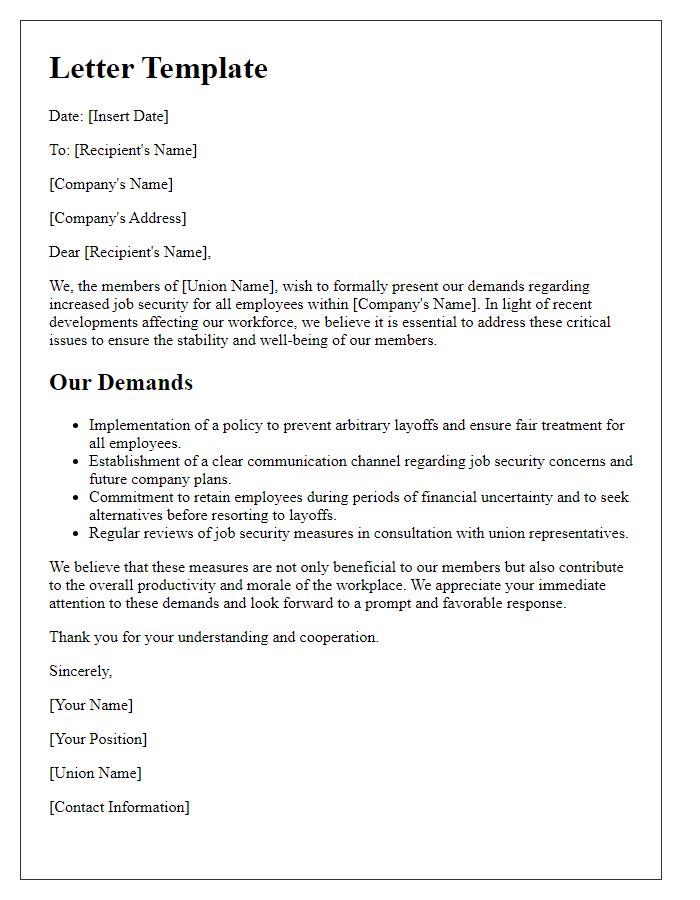
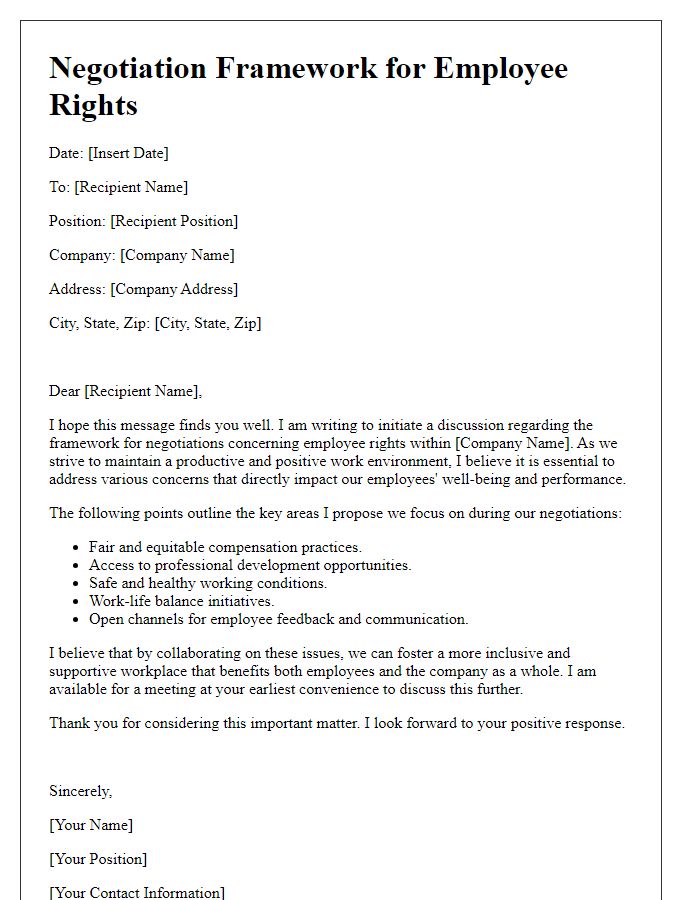
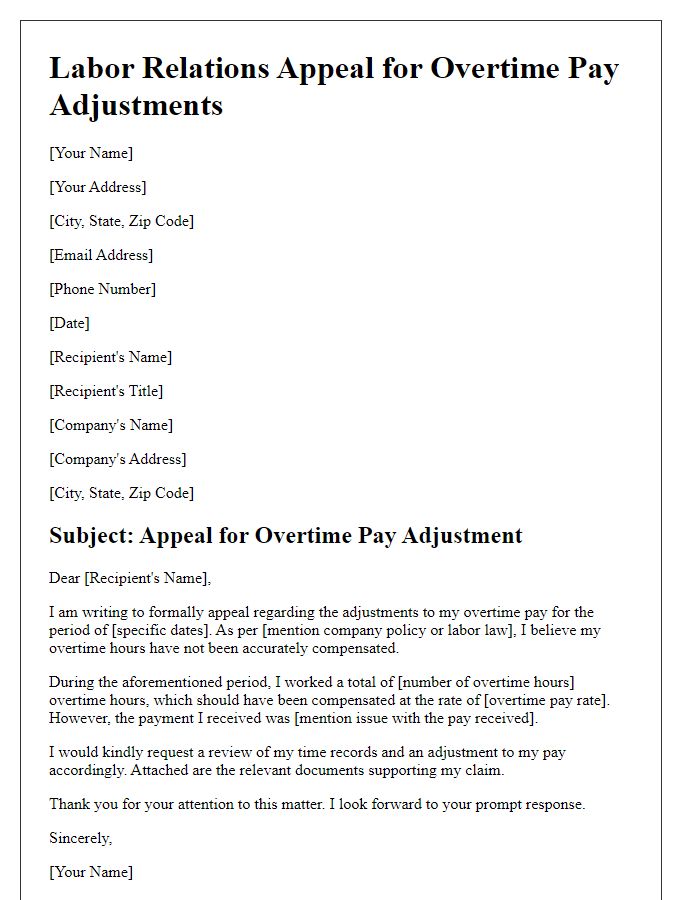
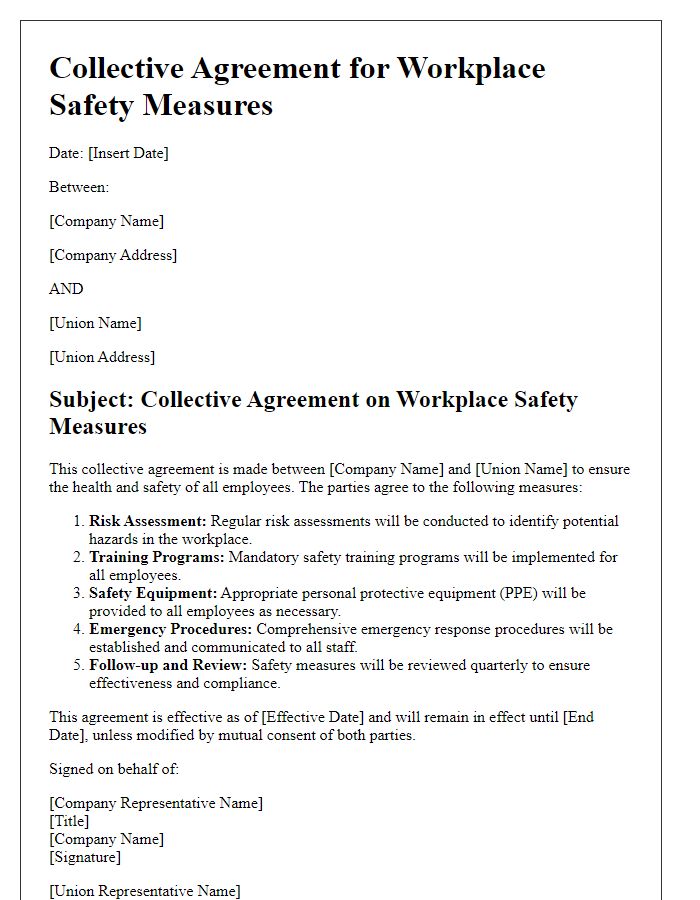
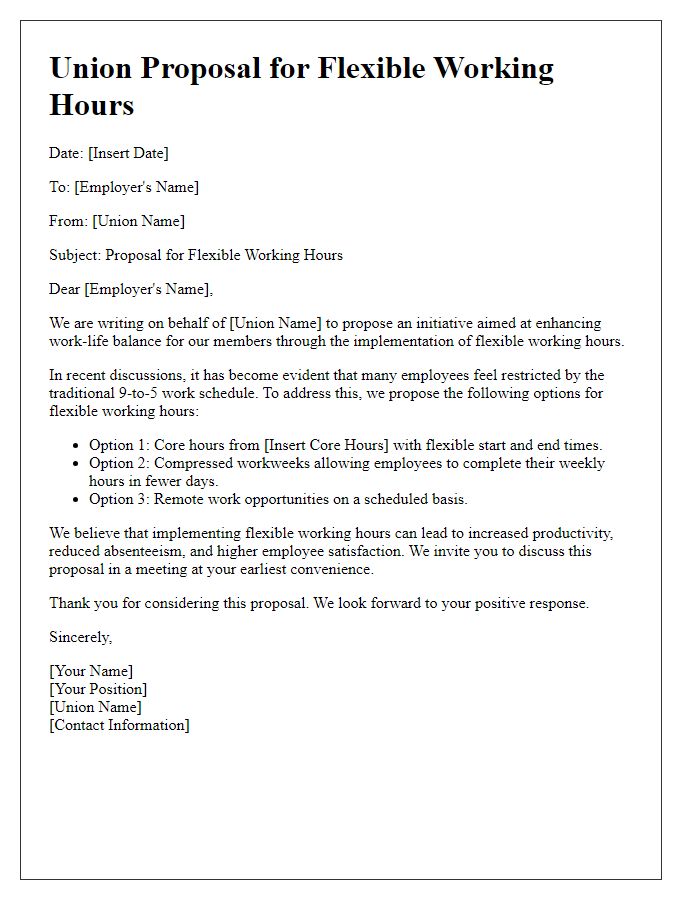
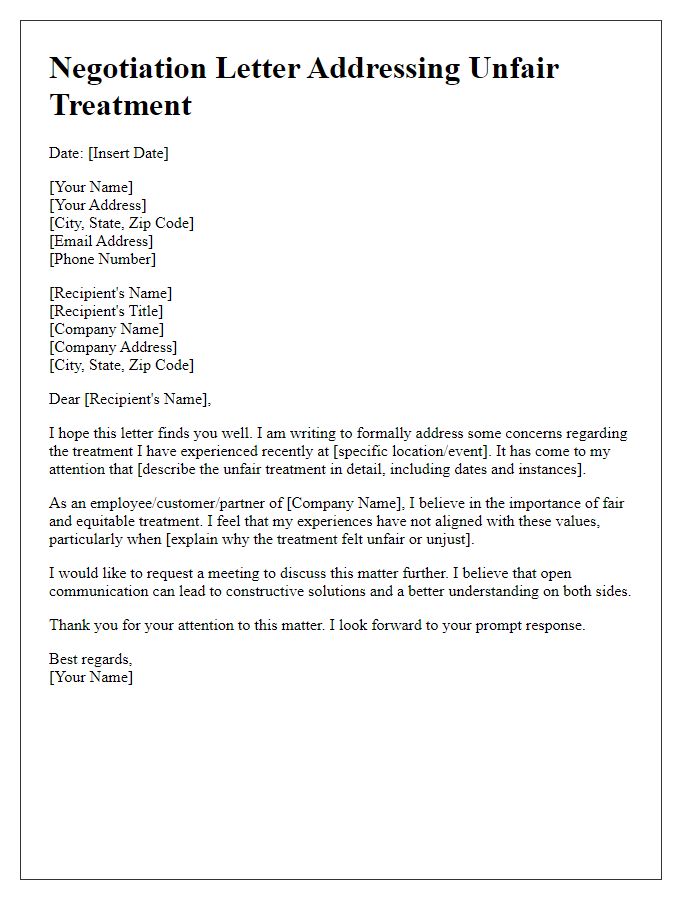
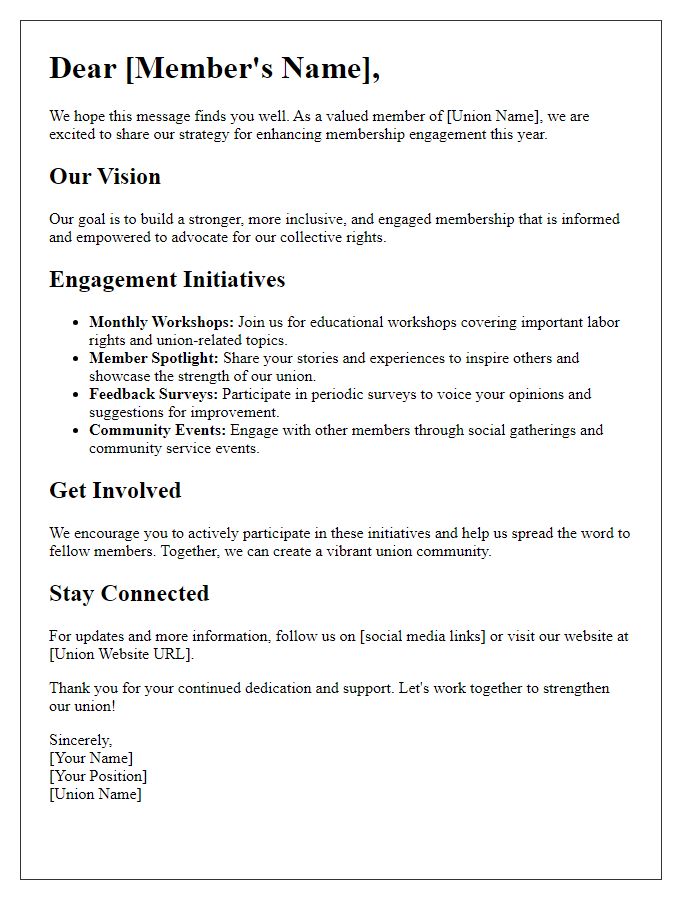


Comments